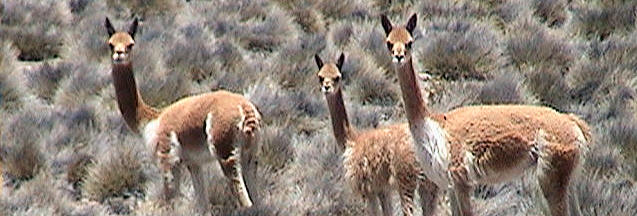|
Conservation genetics
Molecular analyses to determine and monitor genetic
diversity within and between vicuņa populations have been initiated under the
MACS project . Recent work in Peru has shown that indiscriminate translocation
of vicuņa between regions is seriously disrupting the genetic diversity of
hitherto isolated populations. Distinct sub-species are in danger of being lost
by hybridisation. In order to develop guidelines to counteract this process
throughout the altiplano, the present distributions of regional variants needs
to be established. The first step in this is the establishment of a gene bank
reference collection from sampling throughout the altiplano region. A technique
for deriving suitable DNA from faecal samples will be developed by Partner 4.
These samples will then be analysed, using state of the art gene technology to
identify the links between genotypic and phenotypic variants, and their spatial
distribution. Discrete management units will then be defined to minimise the
level of hybridisation by translocation, and on this basis, reliable guidelines
for policy on translocation of breeding stock will be defined. |
 |

Resources
Genetic analysis
|


